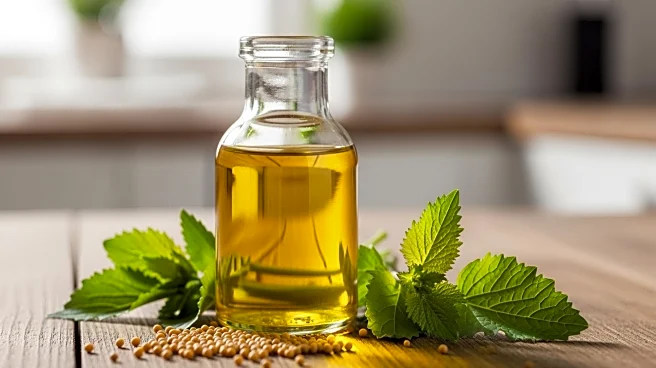What's Happening?
Mustard oil, derived from mustard seeds, is known for its culinary and topical applications, offering benefits such as improved skin and hair health, pain relief, and potential heart health support. Despite its popularity in cooking, pure mustard oil is banned
as a vegetable oil in the United States due to its erucic acid content. Mustard essential oil, however, is considered safe for culinary use as a flavoring agent. The oil is also used in traditional skincare and massage practices, with anecdotal evidence suggesting benefits like reduced fine lines and healthier skin. Studies have shown mustard oil's antimicrobial properties, which may inhibit the growth of harmful bacteria and fungi.
Why It's Important?
The ban on pure mustard oil in the U.S. highlights regulatory challenges faced by traditional remedies in modern markets. While mustard oil offers potential health benefits, its erucic acid content raises safety concerns, leading to restrictions. This situation underscores the need for balancing traditional practices with scientific evidence and regulatory standards. The continued use of mustard essential oil for culinary and topical purposes reflects its cultural significance and adaptability. Understanding these dynamics is crucial for stakeholders in the food and health industries, as they navigate consumer preferences and regulatory landscapes.

















